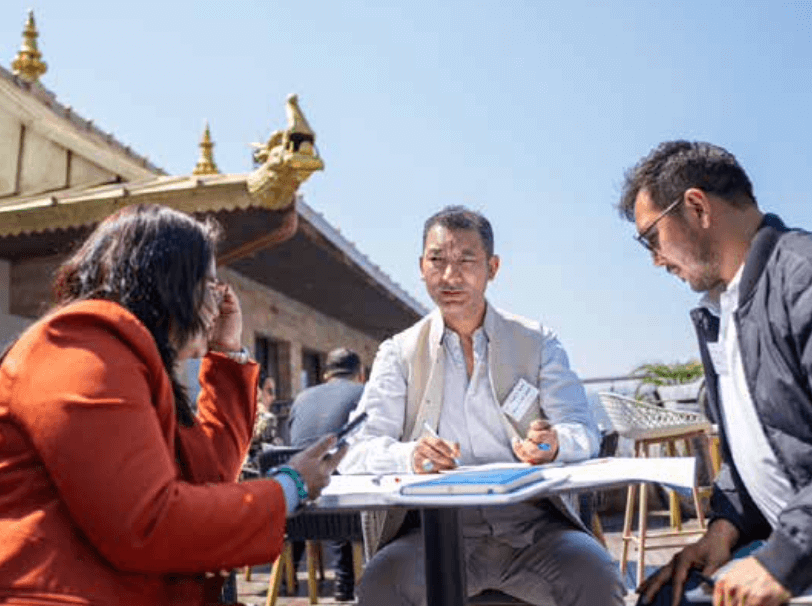From Kargil to Kathmandu: How Four Days Redefined My Conservation Path
By Dr. Javed M. Iqbal

First of all, I feel truly fortunate to be part of the Snow Leopard Network, a platform that has offered countless learning opportunities for me, including introducing me to the Ethical Conservation Alliance’s training of trainers workshops in ethical community engagement for nature conservation. Coming from an Indigenous community in Kargil, a remote Himalayan district in Ladakh, India, I have spent years striving to engage and empower my students and local youth in wildlife conservation. Yet, in this isolated region, my efforts often felt constrained by limited expertise and exposure. The Snow Leopard Network became my compass, guiding me toward transformative opportunities, like this workshop in Kathmandu.
To nurture my students into future conservationists, I realized that we needed to step beyond the classroom into the field and among the communities to create a meaningful impact. But first, I needed to grow. When I learned of the Ethical Conservation Alliance’s workshop, it felt like fate. Here was my chance to deepen my own understanding of conservation and community engagement while connecting with global experts and practitioners who’d walked the path I aspired to guide my students along. This wasn’t just training, it was the missing bridge between my aspirations for Kargil’s youth and the tools needed to turn vision into action.
When I was selected for the Kathmandu workshop, my excitement was immeasurable. Over four transformative days, I found myself among remarkable facilitators and conservationists, each sharing invaluable insights from their journeys. The PARTNERS Principles resonated deeply with me, offering a foundational rubric for designing an effective conservation initiative. Learning how to integrate Presence, Apt planning, Respect, Transparency, Negotiation, Empathy, Responsiveness and Strategic support into real-world conservation efforts was incredibly enriching.
One of the best aspects of the training was its interactive and participatory design. It was not a conventional, lecture-heavy, or PowerPoint-based workshop. Instead, the facilitators conducted the sessions through collective knowledge sharing, fostering collaboration and encouraging every participant to contribute their personal insights. I must say, they ensured that we all had a hand in steering the boat, making the learning experience both inclusive and empowering. This method itself was a profound lesson in how to facilitate meaningful dialogue and learning.
The workshop ignited in me a renewed sense of purpose and determination, driving me to actively engage with fellow participants and facilitators, seeking their insights and advice on how to initiate meaningful and impactful conservation efforts within my community of young learners back home. I am excited to share that this workshop has catalyzed to revive my long- cherished initiative Peace rChan (rChan meaning Snow Leopard in Purgi/Balti language in Ladakh, India, and Baltistan, Pakistan). Founded in 2012, this initiative envisions the snow leopard as an ambassador of peace. Given its transboundary range across the contentious India-Pakistan Line of Control (LoC), I believe conservation can be a bridge for regional cooperation. My vision is to transform the LoC into an International Peace Park, where collaborative efforts foster conservation and regional harmony. Marking a pivotal first step for Peace rChan, we are preparing to launch our inaugural PARTNERS Principles workshop with the goal of empowering the next generation with the knowledge and skills I gained through this transformative experience.
As I reflect on this transformative experience, I leave with a powerful realization: “Conservation is not just about protecting species. It’s about weaving community connections with presence, implementing apt plans, and respecting every voice and boundary with transparency. It’s about negotiating to nurture trust, bonds, and alliances through empathy, responsiveness, and strategic support.”
About the author : Dr. Javed M. Iqbal is Zoology educator at a local college and founder of Peace rChan, a youth-driven collective dedicated to engaging, empowering, and equipping the next generation of conservation leaders in Kargil Ladakh India
